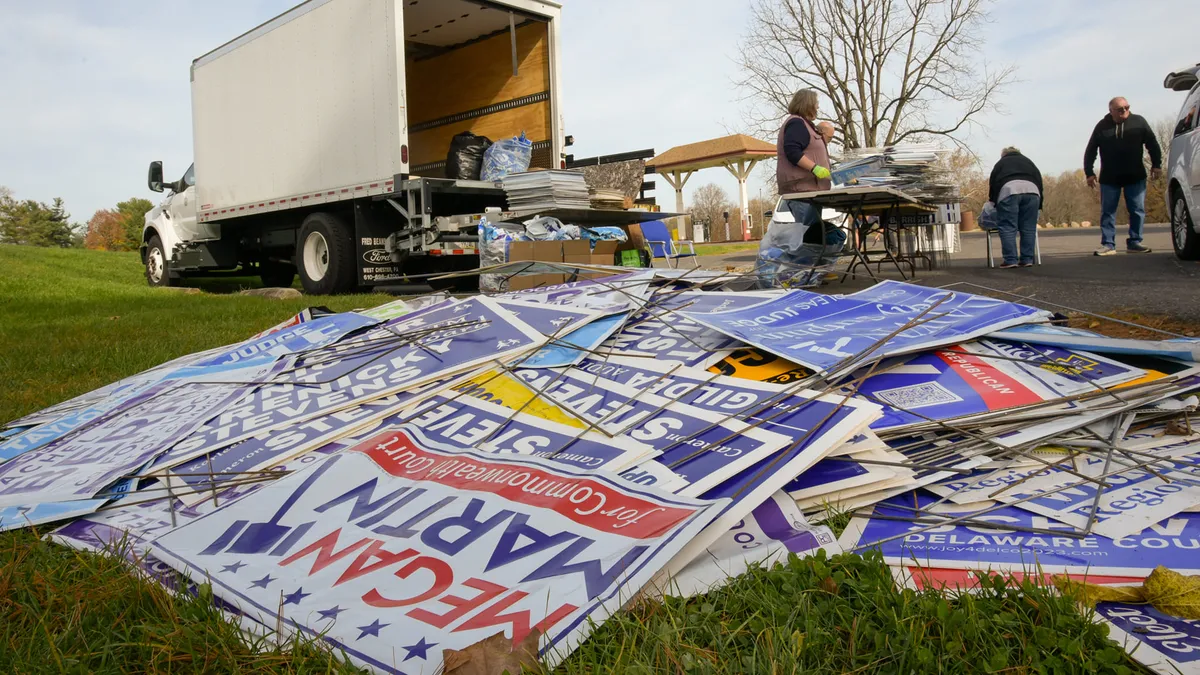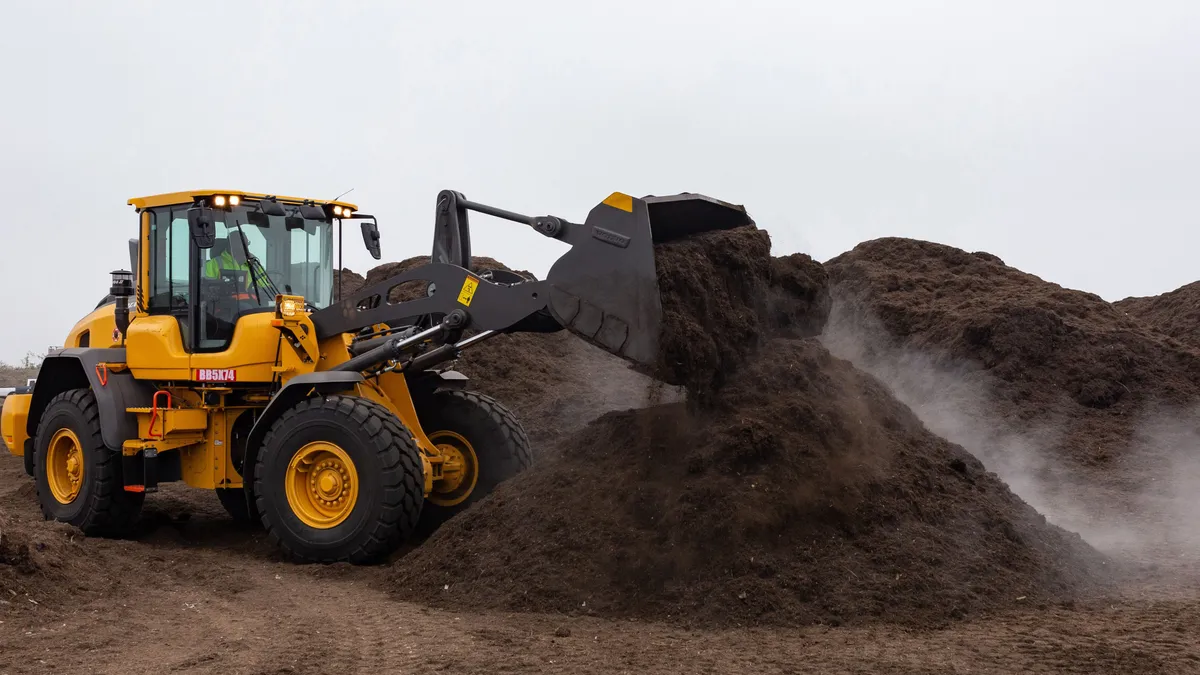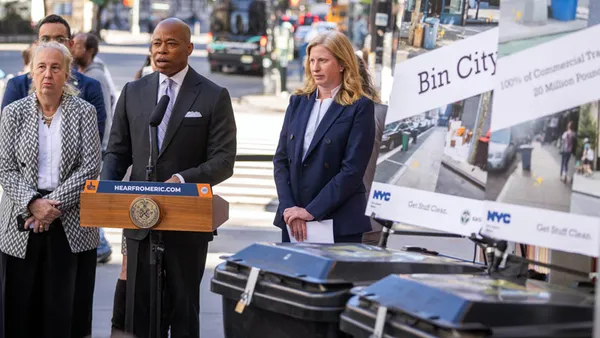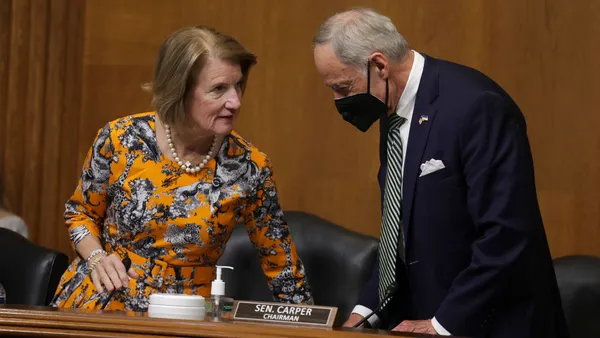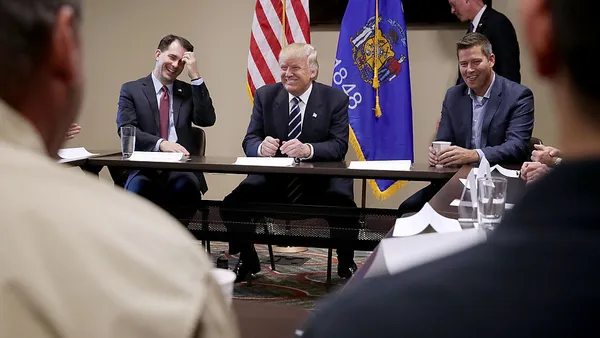UPDATE: The Los Angeles Board of Public Works voted unanimously to award 11 franchise zones to the seven companies recommended by LASAN. During a hearing that lasted more than three hours, LASAN officials detailed a rigorous evaluation process that involved an estimated 16,000 hours of review and board members repeatedly touted the plan’s historic potential to serve as a model for other cities.
Dive Brief:
- The Los Angeles Bureau of Sanitation (LASAN) has recommended seven companies to collect commercial and multifamily waste from 11 exclusive franchise zones. The contracts are for 10 years with two optional renewals for five years.
- Fifteen companies responded to a request for proposals (RFP). LASAN's large zone recommendations include three for Athens Services, two for Republic Services, two for Waste Management and one for Universal Waste Systems. Small zone recommendations include one for NASA Services, one for CalMet Services and one for Ware Disposal. Recology and United Pacific Waste withdrew. Waste Connections was not selected.
- The contracts will require approval from Mayor Eric Garcetti and the L.A. City Council. The transition would begin in January 2017 with the goal of full implementation by 2018.
Dive Insight:
This long-awaited announcement is a key step toward launching the Zero Waste L.A. Franchise System, which originated from a proposal in 2010 and is seen as a critical part of the city's future waste strategy. In addition to California's goal of reaching a 75% diversion rate by 2020, L.A. aims to become the first major U.S. city to achieve "zero waste." This is defined as a diversion rate of 90% by 2025 and 95% by 2035.
Franchise holders would be collectively required to reduce solid waste by 1 million tons per year by 2025. In order to meet this target and others, the recommended companies have made plans for a $200 million investment in processing infrastructure. The monthly rate for weekly collections of a 3-cubic-yard solid waste bin, with unlimited recycling, would be capped at $216.72.
Since the plan was finalized in 2014 it has been seen as a model by franchise advocates in cities such as New York for the high diversion mandates, safety programs and emissions requirements. If approved, this system would service nearly 65,000 accounts and be one of the largest of its kind. What this means for the more than the other private haulers currently collecting from multifamily and commercial accounts, how the costs add up and whether the system can be launched in time will all be topics of discussion in the days ahead.
Waste Dive will continue to follow this story as it develops.





